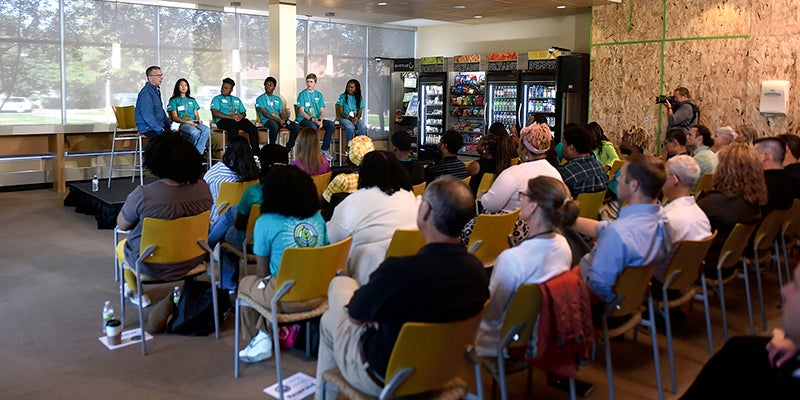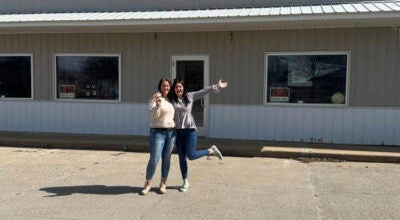Wage hike met with mixed reviews
Published 10:40 am Tuesday, April 8, 2014
While some local leaders were happy with a newly announced deal to increase the minimum wage to $9.50, others aren’t as pleased with the final number.
“We need to increase the minimum wage, but it’s a matter of finding the sweet spot,” said Sen. Dan Sparks, DFL-Austin.
Minnesota’s minimum wage would rise to $9.50 per hour within a few years and continue going up unless Gov. Mark Dayton’s administration applied the brakes, according to terms of an agreement announced Monday.
The outline described by leaders of the House and Senate resolves one of the biggest remaining standoffs in a session on course for an early adjournment. The wage legislation could move through both Democratic-led chambers this week; it was scheduled for a Senate vote on Wednesday. Dayton said he would sign the bill.
A bill to boost the minimum wage was considered a must-do item after an agreement eluded lawmakers a year ago. It would affect some 350,000 workers at or near the bottom of the pay scale.
Minnesota’s current minimum is $6.15 for large employers, though most workers qualify for a higher federal minimum. Minnesota’s base rate hasn’t gone up since 2005. If the bill passes, Minnesota would go from having one of the nation’s lowest minimum wages to one of the highest.
“No Minnesotan should have to work a 40-hour week and continue to live in poverty,” House Speaker Paul Thissen, DFL-Minneapolis, said.
Even at $9.50 per hour, a full-time worker earning the minimum wage would earn just shy of $20,000 before taxes.
While Sparks supports raising the minimum wage, he’s not sure $9.50 is the right target. Sparks feared it could be a bit high, especially for rural border communities like Austin and Albert Lea that have to compete with Iowa, where the federal $7.25 wage threshold is still in place.
“I think $9.50 in the Metro area is much different than $9.50 in the rural area,” Sparks said.
Sparks spoke more positively of an increase to around $8.25 to $8.50.
Rep. Jeanne Poppe, DFL-Austin, spoke favorably of the bill and was pleased with many of its provisions, including gradual future increases and a compromise for small business wages to top out at $7.75.
“We want to make sure that both employees and employers are able to be successful,” Poppe said.
The Austin Area Chamber of Commerce and Executive Director Sandy Forstner voiced stark opposition to the bill.
“We don’t think it’s a good idea,” Forstner said.
Forstner foresees the bill putting pressure on pricing in the food industry, and he even speculated it could lead to some business closures. Forstner noted many businesses operate on thin profit margins, and businesses — especially small businesses — don’t have large caches of funds to dole out.
“We’ll see how it plays out, but we’re disappointed in that decision,” Forstner said of Monday’s announcement.
Business groups, especially those in the restaurant sector, warned that employers would respond by raising prices or scaling back hours.
“We’re concerned about our wage walking away from other states,” said Dan McElroy, president of Hospitality Minnesota. All of Minnesota’s neighbors have a minimum wage that matches the federal government’s $7.25.
Forstner said the bill could affect minority workers, young people and retirees, and it could make it harder for people to get jobs.
“We think it’s going to make businesses more reluctant to hire extra help,” Forstner said.
Poppe did not agree with the argument that this bill would hurt businesses.
“We want to make sure that business can be successful, and this should not be seen as an anti-business approach to things,” Poppe said. “I think this is a positive direction for us to go in Minnesota.”
To Poppe, the minimum wage hike shouldn’t be the only way to improve the economy. She also wants to see tuition freezes to allow more students to go to college, and she said the tax bill will help farmers and small businesses.
“We’ve got good things happening in Minnesota,” she said.
The wage would be indexed for inflation starting in 2018, with an annual cap of 2.5 percent. If the maximum were awarded that year, the first increase would be just shy of a quarter.
A decision on whether or not to block an automatic increase would rest with the Department of Labor and Industry. One-year suspensions would have to be based on data reflecting an economic downturn and only after public hearings. Once conditions improve, the wage could rise faster than inflation to catch up.
Poppe was pleased with the inflator, describing it as a way to prepare for the future and as a way to avoid the need to play catchup if the issue isn’t discussed for several years. Poppe noted overtime pay for ag workers is not addressed in this bill. Some people want to see ag workers get overtime pay after 48 hours.
Sparks said he also has concerns about provisions to increase the bill incrementally through inflation. He’d rather see the issue taken up more often, rather than being left for several years without changes.
“It would be better for everyone involved if we could do more modest, frequent wage increases,” Sparks said.
Two GOP candidates for governor — state Sen. Dave Thompson and Rep. Kurt Zellers — said they would attempt to suspend the inflationary increases if they couldn’t persuade lawmakers to repeal the escalator clause.
“When you raise the price of something you get less demand for it,” Thompson said. “Wages are the price of labor and it’s going to have a ripple effect throughout the economy.”
The compromise bill retains Minnesota’s lower minimum wage for small companies — defined as those with annual gross sales below $500,000 — that tops out at $7.75 in 2016. There is also a 90-day training wage of $7.75 for workers under 20. All of those wage classes would be subject to inflationary increases as well.
“I’m pleased that the small business wages were kept where they were,” Poppe said.
Sparks was pleased with the provisions to cap wages at $7.75 for small businesses, but he said $9.50 could be high for others.
“I think that $9.50 for some of our mid-size businesses could be challenging,” he said.
Sparks said he’s still looking for feedback from local residents before the Senate discusses the bill and vote on Wednesday.
Lawmakers had generally agreed weeks ago to hit the $9.50 mark in a series of steps beginning this summer. But House leaders had insisted on raises tied to inflation starting in 2017. Top senators said they couldn’t muster support for purely automatic increases.
As recently as late March, Senate Majority Leader Tom Bakk, DFL-Cook, said an inflation-linked wage bill would be difficult to pass. He suggested a constitutional amendment letting voters decide if the wage should keep increasing, but that idea landed with a thud.
The wage deal came together within days of the House approving a controversial Senate office building project, which fanned accusations that the building that Bakk sorely wants was connected to deliberations over the minimum wage. The Senate leader denied it and the House speaker backed him up. “It just happened to work out this way,” Thissen said.
Republicans weren’t buying the proximity between the agreements as pure coincidence.
“It’s the ugly side of politics,” Zellers said.
Legislators and Dayton are also pressing to complete a budget plan that gives extra dollars for schools, gives pothole repair money to local transportation departments and raises to caregivers for the disabled and elderly. A second tax relief package could also come together soon. A public works construction package still remains and will take center stage after Easter.
“This session is really starting to come together,” Bakk said. The session must conclude by May 19 but there is a serious push to finish sooner in this election year.
— The Associated Press contributed to this report.







